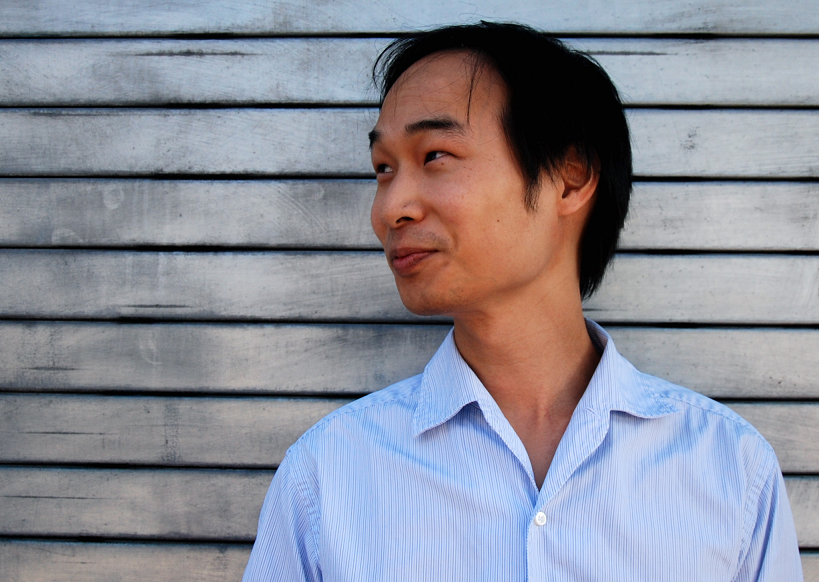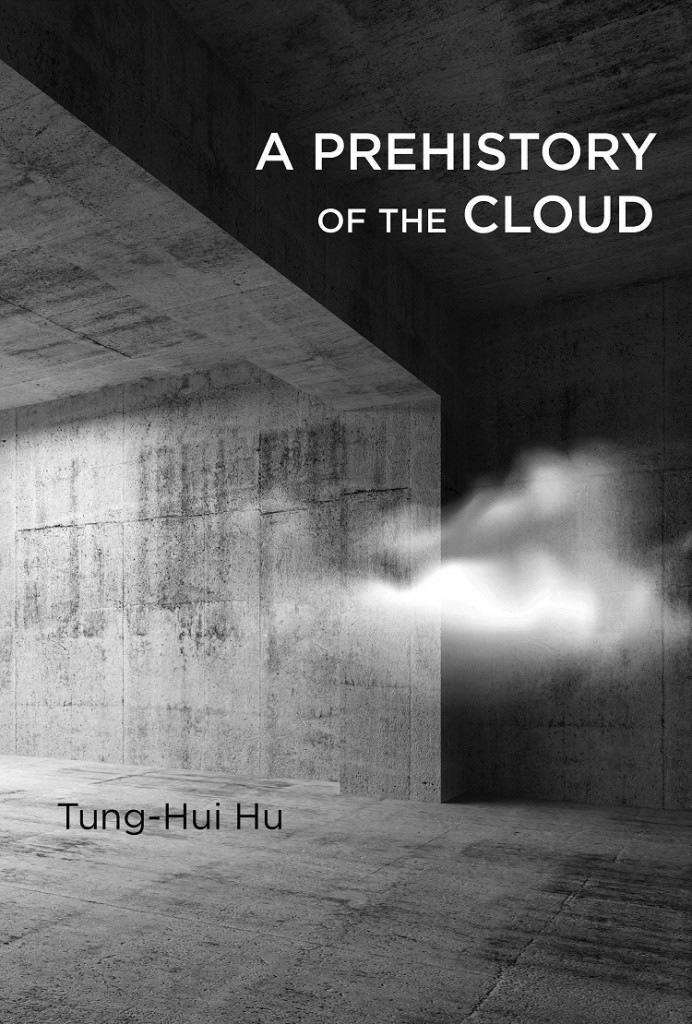Interview: Tung-Hui Hu
 Midwestern Gothic staffer Giuliana Eggleston talked with poet Tung-Hui Hu about his book A Prehistory of the Cloud, making poetry wait, feeling untied from any specific place, and more.
Midwestern Gothic staffer Giuliana Eggleston talked with poet Tung-Hui Hu about his book A Prehistory of the Cloud, making poetry wait, feeling untied from any specific place, and more.
**
Giuliana Eggleston: What’s your connection to the Midwest?
Tung-Hui Hu: I don’t have a strong family connection to the Midwest, but I do, as Kevin Young says in his marvelous poem “Ode to the Midwest,” “want to be doused/in cheese//& fried”. Also, I like thinking about the Midwest as an odd kind of geographical paradox. Almost everyone I’ve met from the Midwest tells me that the state they’re from is at the center of the Midwest—whether that’s Michigan or Minnesota or Kansas—and, very often, that their state is more Midwestern than other states. Everyone wants to be from the middleist state.
GE: How has being an assistant professor at the University of Michigan and living in Michigan influenced your writing?
THH: I’ve been influenced by a number of poets from Detroit—Francine Harris, Jamaal May, Tarfia Faizullah, Matthew Olzmann as contemporaries, and Robert Hayden and Philip Levine, to name just a few historical figures. I’m lucky to live in a vibrant community of writers and readers in Ann Arbor, which means that I get to hear every author worth her or his salt come through town.
GE: You’ve recently written A Prehistory of the Cloud, an academic book that investigates the real vs. the virtual in the context of the digital cloud, but you also write poetry. How do you approach each type of writing? Do you have a preference?
THH: A Prehistory of the Cloud is the result of me going around asking questions such as: Why is the NSA data center in Utah in the same place as the former Pony Express messengers? (Well, it turns out that computers, like horses, need water to cool off.) It tells a story of how the cloud grew out of older networks—and older ideas of power. I move more deliberately through academic work, because you have to get the facts right and there is a chance that you might have to defend your work in public. I prefer writing poetry, but it’s intense and demanding, like shots of espresso; you can’t exist only on that kind of diet.
GE: What do you need in order to write?
THH: I need to be off the Internet. Which isn’t as easy as it sounds, since, as you mention below, I’m a former computer scientist, which means I’m pretty good at finding an Internet signal in th e middle of nowhere.
e middle of nowhere.
GE: You’ve worked as both a political consultant and a computer scientist. What led you to writing poetry? Do you see either of those experiences related to your writing?
THH: I started writing poetry first, in high school—terrible stuff—and just kept going. There’s little crossover between poetry and these other forms of work, which I did to pay the bills. But I have always felt that poetry is a patient literary form (even as it’s capable of great urgency): people have been writing and singing poetry for thousands of years, and will continue to do so for a long time to come. For that reason, I’ve felt that poetry is able to wait for me: I’ll do something else, knowing I’ll always return to writing.
GE: Many of your poems have a strong sense of place. Do you have a specific goal with place when you are writing poetry? Has living in the Midwest, specifically in Michigan, had an influence on the sense of place in your poetry?
THH: There’s a train that goes from DC to Boston, and I think I’ve lived in almost every city that it stops at. Because I moved around so often as a child, I’ve always felt untied from any specific place. Perhaps the word is “cosmopolitanism”—a sense that I’m bound by a sense of community with complete strangers, rather than a specific locale, and that I could be anywhere at any given time. Although I don’t know it as well as I might, southeastern Michigan has more of this quality than one might expect. I think of the Japanese restaurant in Novi that caters to Japanese automobile executives rotating in through their overseas shift, or the McNamara terminal at Detroit Metro airport in early morning, where bleary-eyed travelers are connecting between countries, and the overhead speaker repeatedly announces to them: “Michigan is in the Eastern time zone”.
GE: How does being a poet change the way you view the world?
THH: It makes you look at the world through differently shaped obsessions every week. One week, because you’re writing a poem about geology, you’ll only notice the sparkly texture of stones, or the marble floor inside a building. The next, because you’re writing a poem about grief, your poet radar might only pick up things shaped like tears.
GE: What’s next for you?
THH: I have the 2016 academic year off as a result of a NEA fellowship, so I’m going to do some traveling. My current goal is to spend as much as possible circumnavigating the Southern hemisphere while avoiding the North, seeing if I notice any cultural connections between the various Souths.
**
Tung-Hui Hu is the author of three books of poetry, The Book of Motion (2003), Mine (2007), and Greenhouses, Lighthouses (Copper Canyon Press, 2013), as well as a study of digital culture, A Prehistory of the Cloud (MIT Press, 2015). His poems have received awards from the National Endowment for the Arts and the San Francisco Foundation, and appeared in places such as Boston Review, The New Republic, Ploughshares, Gastro






